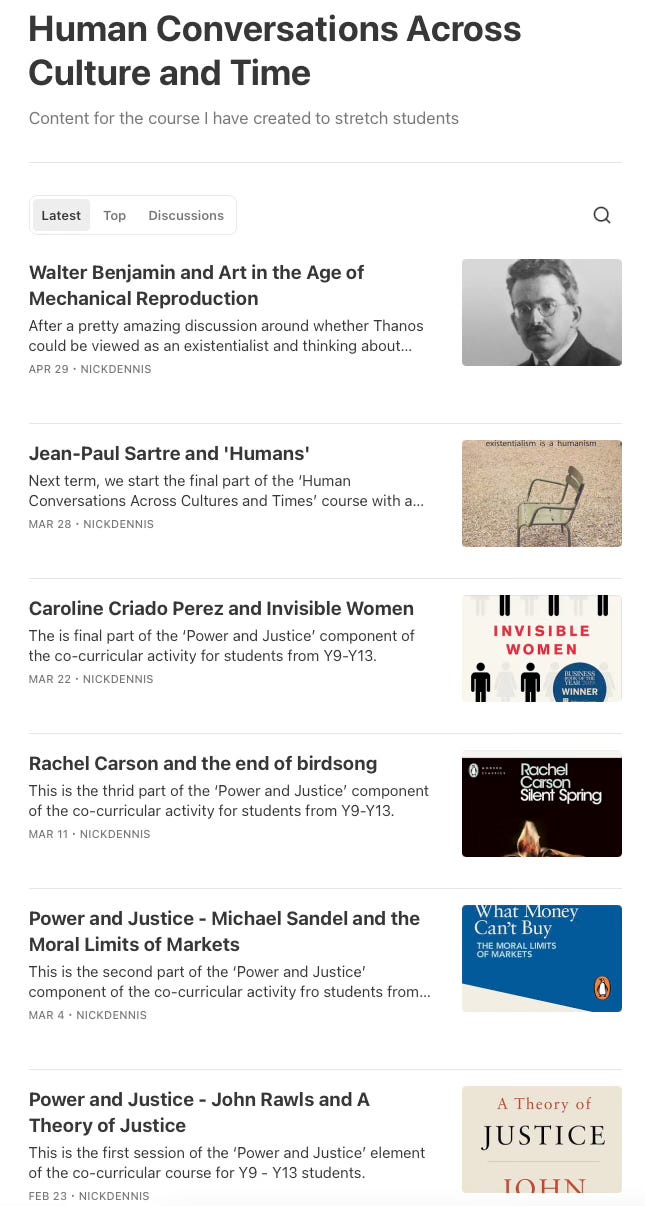You may have read James Walsh's essay, 'Everyone is Cheating Their Way Through College' in the New York Magazine and been taken aback by the examples where students freely admit that they have used AI to produce work that ultimately helps them earn a degree and gain a credential that has significant value. Generative AI has unravelled academia.
The fear has been focused on generative AI based on the assumption that the educational system as it stands is healthy. What is clear to me is that the system is fragile. AI-assisted cheating is not a threat to a healthy system, but a response to an unhealthy one that prioritises certainty over inquiry and outputs over process. We have trained students to consider what is useful in a market sense, but not what's necessary in a human one. This has manifested itself in many ways: exam grades, league tables and regulatory inspection reports that offer grades for schools, reducing complex communities to a single rating. We can also see it in the focus on employability as education's prime focus. Schools are seen, in the most vulgar form, as credentialing mechanisms with little space for intellectual formation and ethical development.
The irony is that generative AI is the perfect expression of the system's values. It is optimised for efficiency and prioritises outputs over processes. It is instrumental rationality writ large and at scale, accessible on a device in your home, at your workplace and in your hand. AI is not a threat to education as suggested in Walsh's piece, it holds up a mirror to it. When the students in the piece use AI to generate essays or solve problems, they are the rational economic actors we have trained them to be, maximising returns while minimising effort. Generative AI is the culmination of values, practices and ideas that we have embedded in our educational systems and wider societies.
To borrow from Stuart Hall, this piece starkly reveals that we are at a conjuncture; a historical moment shaped by the social, political economic and cultural forces where the future is not determined. We could continue along the dominant path of market logic in education or find the means to refocus on a deeply human project where there is space for dialogue and unmeasured learning. It starts with asking the question: what kind of people are we helping our students become?
This may seem like wishful thinking, but there are practical resources that exist. For the last few months, I've been running a weekly extracurricular activity at school based around writing that is not in the curriculum and is diverse and asks searching questions about what it means to be human, our relationship with the planet and how we think about science and ethics. You can find details of it here. It's not assessed. There are no grades. It's built around dialogue, curiosity, and exploring diverse perspectives. It's deliberately slow. And students turn up voluntarily. It has no other purpose than to expose them to ideas and each other and to allow them space to think, speak, and listen. It is an education for meaning making, rather than examination.
I've always admired Winchester College's Div programme, which formally integrates this kind of open-ended, interdisciplinary thinking into the school timetable. It proves that even within a system still shaped by exams and credentials, schools can choose to carve out spaces for ethical reflection, connection, and exploratory learning.
These may seem like small and localised practices. One after-school club. One curriculum strand. They may also be seen as examples that are only available to privileged schools with small classes and teachers with time to engage deeply rather than racing through content. This must certainly be accounted for, but when allied with the examples of the supplementary school movement in the UK, it shows what is possible when there is a deliberate intention to focus on empathy, moral imagination and the ability to see others as ends, not means. It is what Martha Nussbaum in her book, Not for Profit, would suggest are the capabilities of democratic citizenship and in these challenging times, who would not want that?
While schools have a large part to play in how they design, question and adapt their curricula, they are part of wider society and a complex web of stakeholders. Parents anxious about their child's future, employers who use credentials as sorting mechanisms, policy makers worried about international comparisons and companies whose current business models depend on quantification. Any meaningful change requires engaging with these stakeholders, and building coalitions around the belief that a more humanistic education ultimately serves everyone's long-term interests.
In a world where thinking can be outsourced, maybe we should be focusing not just on what students can produce, but on who they are becoming through ethical reasoning, dialogue and the slow effortful journey of being in the world with other beings. AI is not the end of education, but it may be the ending of a certain type of education that has long needed a rethink.





Spot on and Stuart Hall, excellent.
Absolutely agree. I was trying to say something similar here:
https://open.substack.com/pub/bernardandrews/p/education-in-the-age-of-chatgpt?utm_source=share&utm_medium=android&r=35t6uv